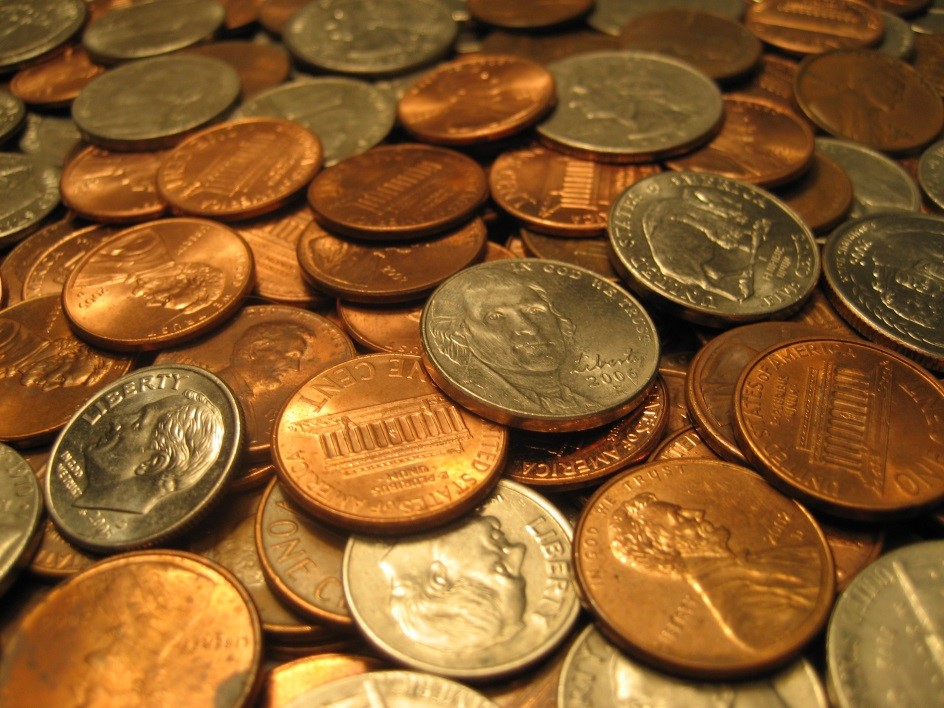
To listen to this reflection as a podcast, click here.
More than 200 years ago, during the presidency of James Madison, the U.S. Treasury received an unusual gift.
It was an anonymous donation of $5 from someone who admitted he had defrauded the government.
Thus was born the Conscience Fund, the official financial depository for those who wish to contribute guilt money. Since that original gift of $5 in 1811, the Conscience Fund has received almost $10 million.
Some of the gifts seem absurdly small. “Please accept this money for a postage stamp I re-used,” said a donor from Massachusetts, who admitted to peeling off and resending a three-cent stamp that hadn’t been canceled the first time. Nine cents were enclosed.
Other gifts have been substantial. The Fund received a check in 1990 for $155,502 – an oddly specific number – without any clue as to what it represented.
A donor wrote: “About eight years ago I took from a railroad station an item worth about $25, and this has been on my conscience since. So I’m enclosing $50 to clear my conscience.” Another person sent the government a dime. “This afternoon I found the enclosed coin on the pavement.”
Some of the notes are head-scratchers: “Enclosed is $210 for some letters I read many years ago, and some food I didn’t pay for.” One particular donor sent some handmade quilts in the hope this might settle her tax bill.
A 1966 contribution arrived with this note: ″My conscience hurts because I stole government property: two metal panel office dividers with plastic upper portion. I ask your forgiveness and say I am extremely sorry for this rotten act. Enclosed $50 bill to cover cost… May God and you forgive me.″
Almost all of the notes that accompany financial donations are anonymous. Some of the gifts are forwarded by clergy who have received deathbed confessions.
Interestingly, donations have declined in recent years. While the Fund received $1.1 million in 2014, only $23,000 was added to the coffers in 2016. Since all contributions are transferred to the general fund of the U.S. Treasury, some speculate that the decline might be correlated with historically low levels of trust in the government. No one knows for sure.
Perhaps the most famous letter is this one: “Dear Internal Revenue Service, I have not been able to sleep at night because I cheated on last year’s income tax. Enclosed find a cashier’s check for $1,000. If I still can’t sleep, I’ll send you the balance.” The note was unsigned. Hopefully you’re sleeping well as the deadline for submitting your 2022 taxes approaches.
Human beings are wired in such a way that if we break the law – God’s laws or civic laws – we will be driven, inexorably, to one of three strategies:
- Denial
- Evasion
- Confession and restitution
All three strategies cost something.
Denial costs us our mental health. “I’m a good person, I haven’t done anything wrong.” But a violated conscience has a way of subverting our inner happiness, no matter how many years have gone by and how many rationalizations we have believed.
Evasion costs us our integrity. “No one knows what I’ve done.” Even if you don’t believe in a God who is halfway paying attention to the world, you in fact know that you know, and compromised character is always predisposed toward the next compromise.
Confession and restitution cost us our pride. “I’ve done wrong. No excuses. I will do whatever it takes to make things right.” The wonderful thing about the third option is that it resets both our inner and outer worlds – restoring our peace and reconnecting us with God and others.
The Bible adds an interesting twist.
As Jesus intimates in his Parable of the Unmerciful Servant (Matthew 18:21-35), we’re all in debt to God: serious, jaw-dropping, not-a-chance-in-a-million-lifetimes-to-pay-it-all-off debt.
But there’s good news: God is the ultimate debt eraser. On the cross God offered a Gift that more than outweighs the world’s cumulative sin deficit.
There is, of course, a cost that we have to bear.
We have to give up the hope of ever buying our own way to heaven.
Which, when you think about it, is a small price to pay for a clear conscience.
